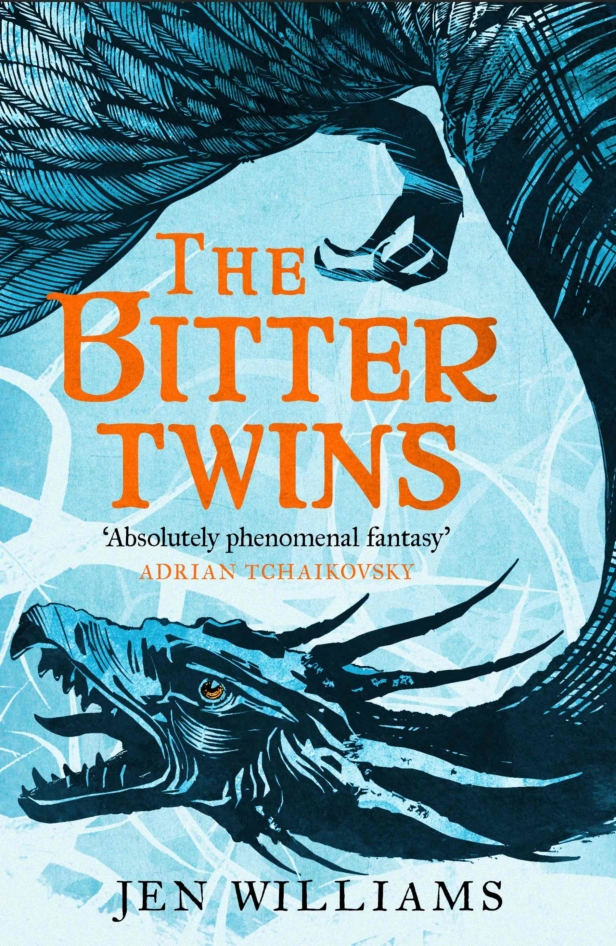Jen Williams makes a triumphant return to the world of Sarn and her Winnowing Flame trilogy with The Bitter Twins. We pick up after the conclusion of The Ninth Rain, in which Sarn’s mortal enemies the Jure’lia have returned, a legendary Eboran war beast has been hatched, and our central trio of Vintage, Tormalin, and Noon have to work out what on earth they’re going to do about it all. As the situation grows ever more precarious, Tor and Noon find themselves searching out an old Eboran legend, which may hold the key to the Jure’lia’s defeat.
Williams gleefully subscribes to the idea that sequels get bigger; we see more of Sarn, more characters are introduced, and the histories of politics, characters, and regions are explored further. Occasionally, the quick pace set elsewhere in the narrative can be swamped with the detail that Williams brings. There is a lot of information to process here, whether it’s in Eboran history or the role of Jure’lia in the development of Sarn. Thankfully, Williams has such an imagination and tells her tale with such verve that it never feels like too much for too long.
The characters are as vivid as ever and the new personalities shine through, particularly Vostok, the only war beast with a connection to their past and a wonderfully dry delivery. There is even room for a sweet love story that develops quietly alongside the fight to keep Sarn free of its invaders. Scholar and archeologist Vintage remains a superb creation and it’s no surprise that she has become a fan favourite. She’s a character full of wit, wisdom, and wicked one liners while also following an emotional arc that had its foundations in the first book.
The Bitter Twins also has time to explore the murky morality that happens during war and occupation. Hestillion’s arc is particularly fascinating in this respect; every move she makes comes from a logical place, but often compromises the values and behaviours that we learn of during both this novel and in The Ninth Rain. The Eborans were always figures of dubious history, but Williams takes time to dig deeper into that and brings the present generation face-to-face with the consequences of their elders’ actions.
As dark as The Bitter Twins can get (and, at times, it can be pretty grim), there is always a sense of hope at play in the narrative. Characters operate at different levels of optimism, but each has the honour and determination to get their jobs done, however daunting or small they might be. In our own grim reality, this has a nicely bolstering effect, one which reinforces the importance of hope throughout the narrative.
The Bitter Twins is a worthy follow-up to The Ninth Rain. It’s wickedly entertaining and balances its humour at all times with an emotional sense of consequence for each of its characters. All that’s left to say is that we can’t wait to get our hands on the third book.
